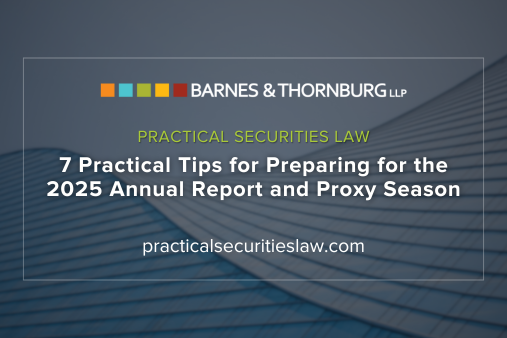Three federal district court judges have recently requested the FDA to state whether the terms “natural” or “all natural” can be used to refer to foods containing genetically-modified organisms (GMOs) to help resolve pending consumer class actions over the term. Judge Yvonne Gonzalez Rogers of the Northern District of California started the trend in Cox v. Gruma Corp., a case in which the plaintiff alleges that Gruma’s use of “all natural” on its tortilla shells violates various consumer protection laws because they contain genetically-modified corn. In Van Atta v. General Mills, pending in Colorado and involving GMOs in granola products, a magistrate judge agreed with Judge Rogers and recommended a stay of proceedings in the case pending the FDA’s response to Judge Rogers’s request. Most recently, in Barnes v. Campbell Soup Co., also pending in the Northern District of California and involving GMOs in various soups, a different judge also stayed the case pending the FDA’s response.
These cases are potentially important because there are many pending consumer class actions, particularly in California, over whether the use of some variant of the term “all natural” is proper in light of one of more ingredients in the food at issue. Indeed, some quip that food labeling litigation has replaced tobacco and asbestos as the favorite category of suit for the plaintiffs’ bar. Thus, the FDA’s response to the request by these courts, and the courts’ further actions based on the response, could resolve or guide the resolution of many of these cases.
It is often said that the FDA does not have a definition of “natural.” There is reason to question this common wisdom. As noted in one of our Alerts from December 2011, it is true that the FDA published a notice in the Federal Register in 1993 stating that it declined to adopt a definition of “natural.” It is equally true, however, that at the end of that same notice the FDA stated that it planned to maintain “its current policy… not to restrict the use of the term ‘natural’ except for added color, synthetic substances, and flavors as provided in [21 C.F.R.] § 101.22. Additionally, the agency will maintain its policy… regarding the use of ‘natural,’ as meaning that nothing artificial or synthetic (including all color additives regardless of source) has been included in, or has been added to, a food that would not normally be expected to be in the food.”
Further, the FDA has sent warning letters based on this “non-definition” from the Federal Register. On the other hand, in 2010 it declined a request from a federal district court in New Jersey to state whether high-fructose corn syrup is “natural.” It will be interesting to see if the FDA responds to the current requests and how any response the FDA may provide to the requests compares to the Federal Register “non-definition.”
These cases are also interesting because they raise questions concerning the powers of two of the three branches of our federal government with respect to each other. The FDA already faces serious resource constraints. What if several courts start asking it to define natural or other terms with respect to numerous different ingredients, not just GMO ingredients? If the courts impose deadlines, FDA may have to shift resources from other presumably important work to comply with the deadlines. Congress imposed statutory deadlines for FDA to issue several food safety regulations in the Food Safety Modernization Act and FDA failed to comply with them. What happens if it misses a court’s deadline? What if two or more courts impose conflicting deadlines? If the courts do not impose deadlines, it could be quite some time before the FDA responds. What happens to the cases in the interim? Will discovery be stayed as it has been in the cases mentioned above? If so, could important evidence be lost? If not, will the courts and parties waste lots of valuable time and money while they await the FDA’s response? Hopefully none of this will come to pass, but these questions do show how making such requests to FDA could lead to problems.
For more information, contact the Barnes & Thornburg attorney with whom you work or one of the following attorneys:
Food, Drug & Device: Lynn Tyler at (317) 231-7392 or lynn.tyler@btlaw.com; or Hae Park-Suk at (202) 408-6919 or hae.park.suk@btlaw.com.
Advertising and Marketing: Joan Long at (312) 214-4576 or joan.long@btlaw.com; or Olivia Fleming at (317) 231-6444 or olivia.fleming@btlaw.com.
Visit us online at www.btlaw.com/food-drug-and-device-law-practices/ and www.btlaw.com/advertisingandmarketing/.
© 2013 Barnes & Thornburg LLP. All Rights Reserved. This page, and all information on it, is proprietary and the property of Barnes & Thornburg LLP. It may not be reproduced, in any form, without the express written consent of Barnes & Thornburg LLP.
This Barnes & Thornburg LLP publication should not be construed as legal advice or legal opinion on any specific facts or circumstances. The contents are intended for general informational purposes only, and you are urged to consult your own lawyer on any specific legal questions you may have concerning your situation.












/Passle/6488d4630e7e25c9ac9f834a/SearchServiceImages/2025-01-10-22-16-01-995-67819c21f01b92931abcaac4.jpg)

